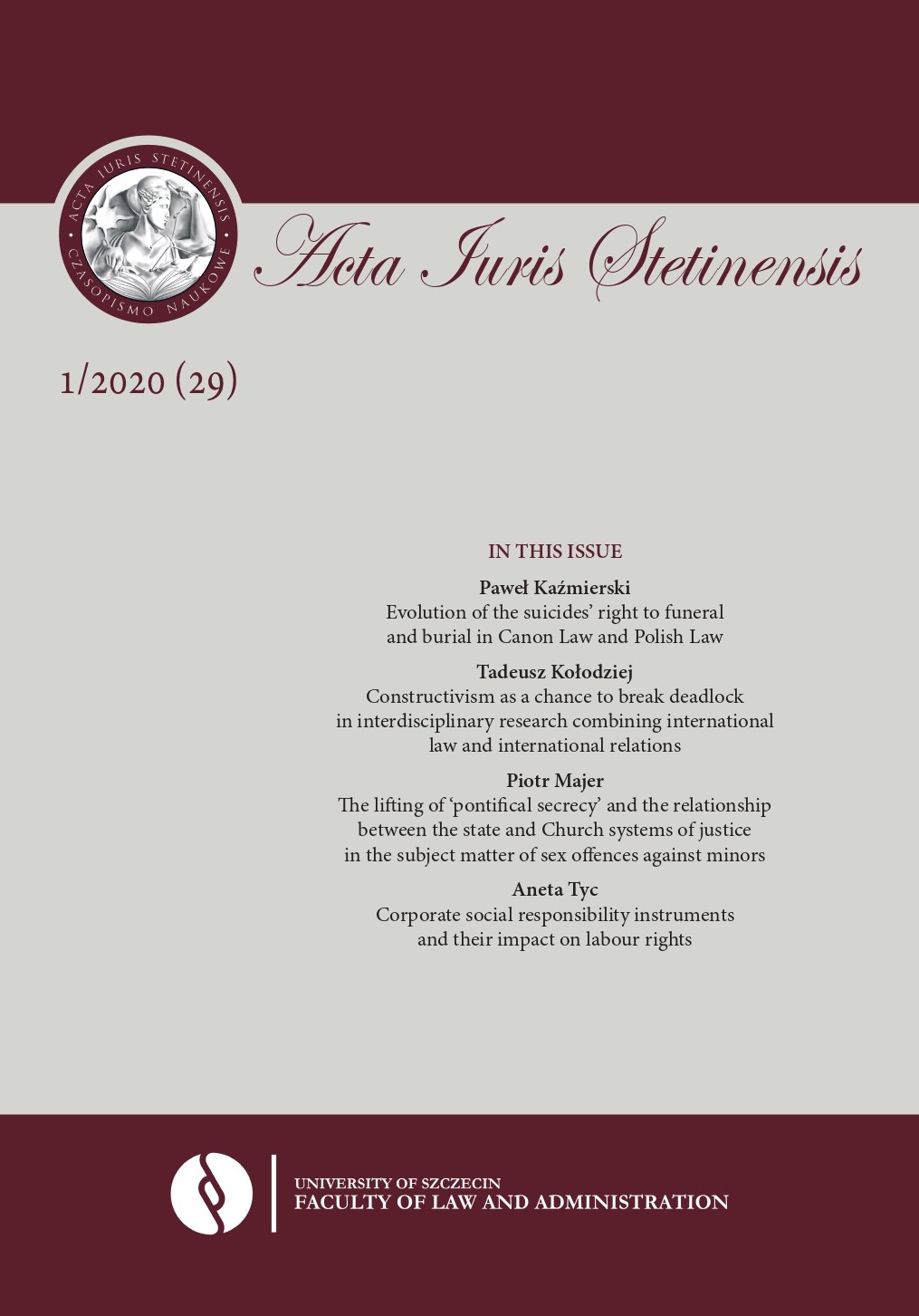Body check or extrajudicial search – chaos in the Police Act
Body check or extrajudicial search – chaos in the Police Act
Author(s): Aneta Kamińska-NawrotSubject(s): Law, Constitution, Jurisprudence, Constitutional Law, Human Rights and Humanitarian Law, Sociology of Law, Court case, Administrative Law
Published by: Wydawnictwo Naukowe Uniwersytetu Szczecińskiego
Keywords: body check; search of a person; the Police Act; rights and freedoms of an individual; judgment of the Constitutional Tribunal
Summary/Abstract: A body check is a measure that is usually carried out in the event of a reasonable suspicion of a crime, i.e. when there are grounds to institute criminal proceedings. Moreover, the Police Act has never determined the limits of Police interference with the constitutional rights and freedoms of an individual, nor did it identify any adequate measures to protect the checked persons. These limits were determined by the provisions of the Regulation,1 according to which the Police could not uncover the parts of body covered with clothes. The Constitutional Tribunal recognised these provisions as inconsistent with the Constitution of the Republic of Poland2 and ordered that the definition of a body check, determining the limits of Police interference with the rights and freedoms of an individual and authorising the person subject to a body check to appeal to the court against the decision of the Police, be included in the Police Act. The amendment to the Police Act and other acts,3 which implemented the judgment of the Constitutional Tribunal, authorised the person subject to a body check to have the actions of the Police verified by an independent court, but at the same time, it expanded the scope of Police interference with the rights and freedoms of an individual. The legislator of the Police Act and other acts did not remove the one prerequisite that simultaneously triggered a body check and the search of a person, but instead added other prerequisites that broadened the scope of Police measures in this respect. The limits of Police interference with the rights and freedoms of an individual were also expanded to include a check of the oral cavity, nose, ears and hair of the person subject to a body check and, in special cases, also their private body parts, which the Police officer may check visually or manually. The purpose of this paper is to show that the provisions of the amended Police Act and other acts, to a large extent, failed to meet the provisions of the Judgment of the Constitutional Tribunal of 14 December 2017. Its extensive, non-transparent provisions broadened the authority of the Police to arbitrarily determine the limits of interference with the rights and freedoms of an individual, thereby eradicating them. The analysis of the amended Act and its implementing acts, as well as the statement of reasons for the draft Act, confirm the thesis that the amended provisions transformed a body check into an extrajudicial search.
Journal: Acta Iuris Stetinensis
- Issue Year: 2020
- Issue No: 29 (1)
- Page Range: 33-47
- Page Count: 15
- Language: English

